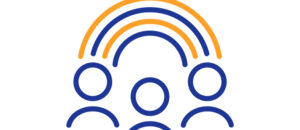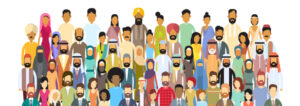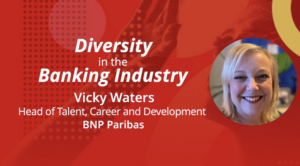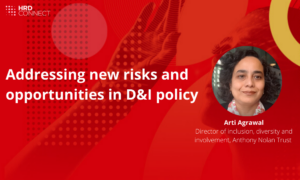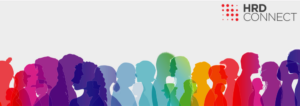How HR can empower disabled and neurodivergent staff
- 6 Min Read
Discover how one organisation has expanded and made progress in its D&I agenda, plus its priorities for the time ahead
- Author: Mark Simmons
- Date published: Nov 23, 2021
- Categories

As D&I remains a top priority for organisations and professionals, leaders have become aware of the key components that exist alongside race and gender, including disability, neurodivergence, sexuality, and unconscious bias.
An organisation that has taken a progressive approach is GXO Logistics, which recently announced that it had hired its 22nd employee with Down Syndrome, enabled by the organisation’s collaboration with the Down Syndrome Association’s WorkFit programme.
According to Mark Simmons, the HRD of GXO Logistics, the organisation is working to create an organisation without boundaries for talent, collaborating with external groups to benchmark progress. Central to this is a strategy which has four key parts, ensuring the organisation retains focus and consistency in its mission.
At GXO Logistics, we’re addressing diversity challenges within the sector with a strategy which will be four years old next year. Our HR team has a strong focus on our core D&I pillars, as there can be a danger of organisations trying to cover too many initiatives; we want to continue to develop our tools, processes and opportunities, but be clear on tangible measurements to track progress.
Looking to broader conditions, we’re currently in one of the tightest labour market of recent times, and therefore, even from a fundamental resourcing perspective, we want to be an attractive employer for everybody. Our drive is to have no restrictions, barriers or reasons why professionals wouldn’t want to work in our organisation and have a career in our business; we believe in enjoying GXO from a career point of view, not just as a job.
When you aim to have continual development of a rich talent pool, you get an environment where people can be themselves and we have a meritocracy in our business systems. There’s also a customer perspective to consider; there are initiatives we’d be proud to tell our major blue chip organisations that we’re executing.
There are circumstances where we learned from our customers, but we also want to be leading, and there are certain areas within our agenda where we can share what we’re doing and show how others can better shape their business.
Today, in our UK strategy, we’ve got four key parts to our diversity and inclusion agenda: women in logistics, disability confidence, GXO pride, and cultural awareness.
Women in logistics
Initially, we were highly focused on the gender diversity challenge in our business. We sought to understand how we could provide professional networks, how we could remove barriers to people’s career progression, and the metrics on entry, including promotions and new hires.
We regard this as level one of our journey and our other initiatives have corresponding levels as we make progress.
Disability confidence
We’re actively looking to move to level two and become a Disability Confident employer in 2021. We developed a programme that started with two individuals with Down Syndrome that joined us a little over three years ago; we’ve now got 22 professionals across the organisation in the programme. With the current pipeline, we’re looking to double that number in the next 12 months.
There’s a huge demand across different sites that are looking to create jobs and career opportunities with this initiative. With the aim to be a Disability Confident employer, collaborating with the Down Syndrome Associations WorkFit programme, and a more recent partnership with Mencap, we’re joining together all the different parts of the plan.
We’ve endeavoured to make our learning and policy documents as accessible as possible, considering the fonts and colours we use, and how we share messages across the organisation for people with different needs.
The organisation has individuals that’ve got hidden disabilities like dyslexia, dyspraxia, autism and similar conditions, therefore partnering with a group like Mencap is vital because they help educate us. For instance, our line managers are aware of how to manage individuals with lots of different needs.
GXO pride
The third level is our GXO pride initiative, with an aim to become a Stonewall top employer by 2026, looking at all our policies and practices around inclusivity and ways of working.
For me, Pride is about a culture of inclusion that allows everyone to bring their real, true self to the office and perform at their best. It’s about creating an office, warehouse or cross-dock environment where everyone feels comfortable and knows they’re respected and safe in their workplace.
For us, June is Pride Month – it’s the perfect time to communicate our continued commitment to the LGBTQ+ community and celebrate the ways we are different, but also better, together.
Our social responsibility extends broadly; we’ve got over 30,000 professionals in 49 different locations globally. Therefore, we will remain a major employer in many pockets and corners of the UK, and it’s part of our responsibility, locally and nationally, to be an organisation that is proud of our wide pool of talent, and allows professionals to be themselves.
Our people centric DNA drives us to have the widest possible reach of all individuals and all talents. We ask ourselves how we can differentiate ourselves in the marketplace; we strive to make sure our values are explicit, led from the heart as well as the head, to both current employee and to prospective talent.
Cultural awareness
The fourth level, that underpins the other three, is cultural awareness. How do we develop the capability, attitude, mindset and approach of our managers to ensure that we’ve got good cultural awareness? We’ve got focus group workshops that represent the diverse individuals of our organisation and we review our learning programmes to ensure that we remove any unconscious bias.
We’ve got a calendar of activities and initiatives that are in place, and will be refreshed after 2022, with an aim to turn some of our findings and discussions into tangible actions. From a learning and development point of view, we’ve developed some podcasts for managers, giving people the tools and the confidence to embrace this initiative for their respective parts of the business.
Looking to the future, we’ve got a range of external relationships in D&I that we’re keen to grow, working with the armed forces and open prisons to acquire and develop talent. A key priority over the next year is to coordinate more nationally.
For instance, we’ve always had an effective pipeline of entry programmes for young people, but in light of the pandemic and looking at the demographics of employment today, we’re making sure that we have a joined up plan. There will be a greater emphasis on national coordination, but centred around the four parts of the agenda.



